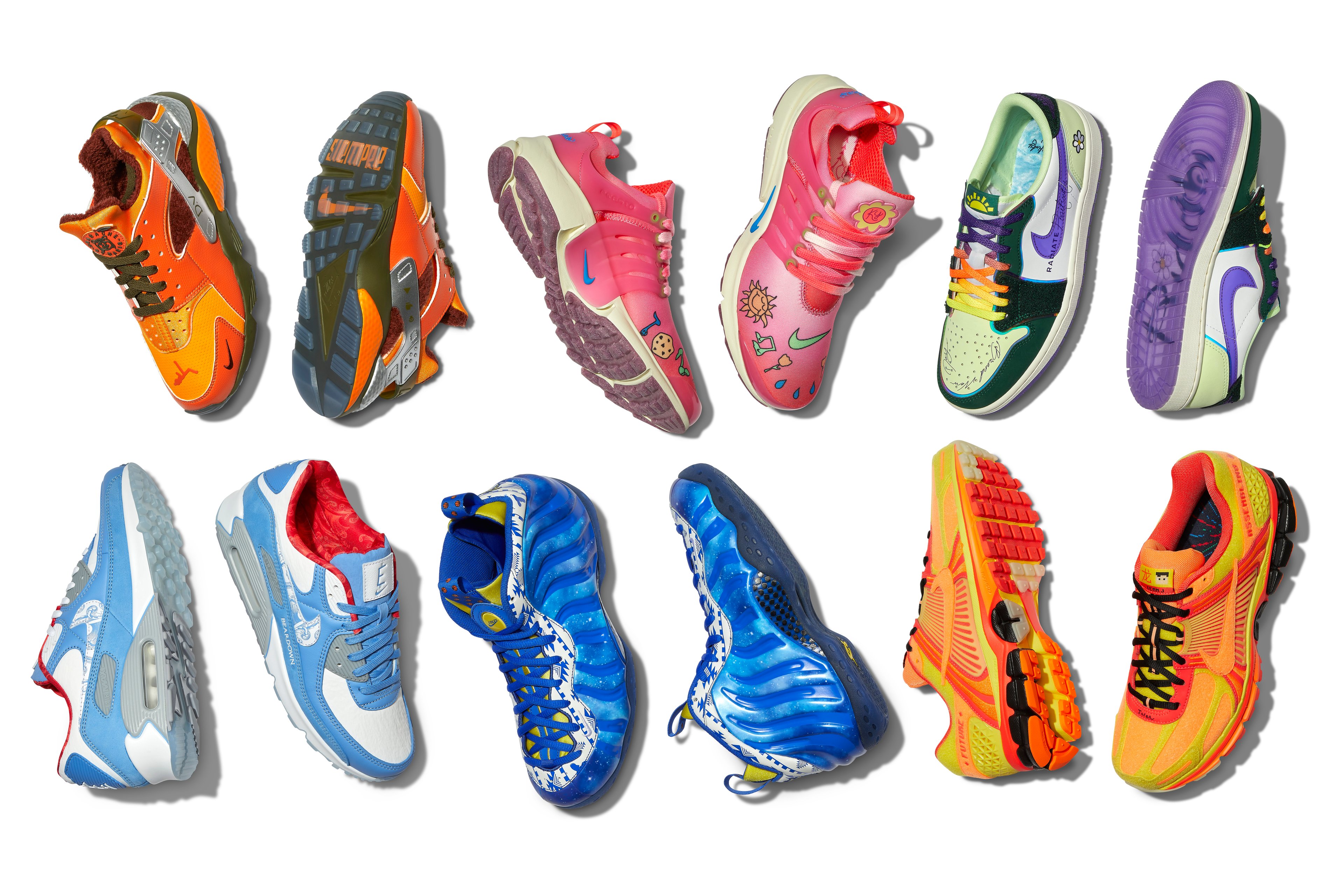
Get 'em while you can. Image source: Nike.
Nike Inc (NKE +1.00%) surprised the sports world last week by saying it would no longer make golf equipment. Twenty years after the world's largest sports apparel company dove headfirst into golf with Tiger Woods, the company said it would stop producing clubs, balls, and bags, adding in a brief press release that it would instead be "accelerating innovation in golf footwear and apparel." The news seemed unusual considering Nike's stable of golf stars including Rory McIlroy and Michelle Wie, in addition to Woods, but Nike's recent performance helps explain why.
Nike's losing its grip on the game
Golf was the Swoosh's worst-performing category in its last fiscal year, as sales fell 8% to $706 million, which followed a 2% decline the year before. Golf was also the only segment to lose sales on a constant currency basis last year, and has become Nike's smallest revenue contributor.
The company does not separate golf apparel and footwear sales from equipment, so it's unclear how much revenue the company will forego without clubs and balls, but overall equipment sales have also been waning recently. Like golf, they fell 8% last year and 2% the year before.
Nike built its golf business through the late 1990s and 2000s on the back of Woods' stardom, but his career unraveled following a marital infidelity scandal in 2009, leading Nike's golf business to plateau and then decline. The company signed Rory McIlroy in 2012 in a $200 million deal, but he hasn't won a major since 2014 and his star has been eclipsed by Under Armour's (UA +0.45%) Jordan Spieth, among others.
Nike isn't alone here
Golf participation has been on a slow and steady decline for two decades. Participation among millennials has been particularly weak, as many have flocked to cities where golf courses are less accessible; they also complain that golf takes too much time and costs too much money.
Nike's biggest rival, Adidas (ADDYY 1.80%), said earlier this year that it would sell its golf brand, TaylorMade, which also includes the Adams and Ashworth brands. Adidas CEO Herbert Hainer's statement on the subject was remarkably similar to Nike's: "TaylorMade is a very viable business. However, we decided that now is the time to focus even more on our core strength in the athletic footwear and apparel market."
Under Armour's golf footwear and apparel have gotten a boost from Jordan Spieth, but that company has said it has no interest in producing golf equipment at this time.
The reality is it's not a great business
Callaway Golf (ELY 0.07%), the only pure-play golf company on the market, has finally recovered to profitability after several years of losses following the recession. As an expensive leisure activity, golf is one of the first expenses people cut back on in a down economy, and that and declining participation rates have made the post-recession recovery especially difficult.
In addition, brand-centric companies like Nike and its rivals value professional athletes for their ability to sell merchandise. That's why logos adorn golfers' shoes, shirts, and hats, but equipment doesn't work that way. No TV viewer can see what clubs or balls a pro golfer's using, and even if Nike does make great equipment, it's much harder to make that sale to the consumer.
Nike has shown in the past that it's been unafraid to leave faltering businesses. It shuttered its FuelBand division in 2014, and sold Umbro and Cole Haan in 2012. At $706 million, golf makes up barely 2% of total revenue.
Sad for @nikegolf employees that worked so hard and made genuinely great golf equipment. Your support will always be appreciated #TeamNike
— Rory McIlroy (@McIlroyRory) August 4, 2016
Rory McIlroy may be sad his sponsor has moved on, but Nike will prosper with or without his favorite clubs.









